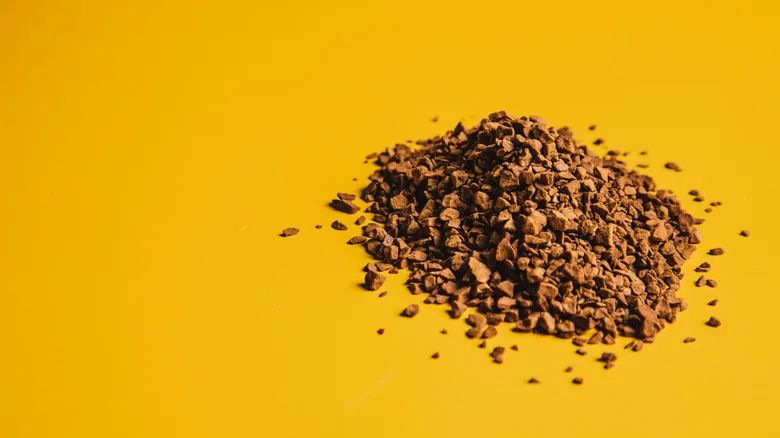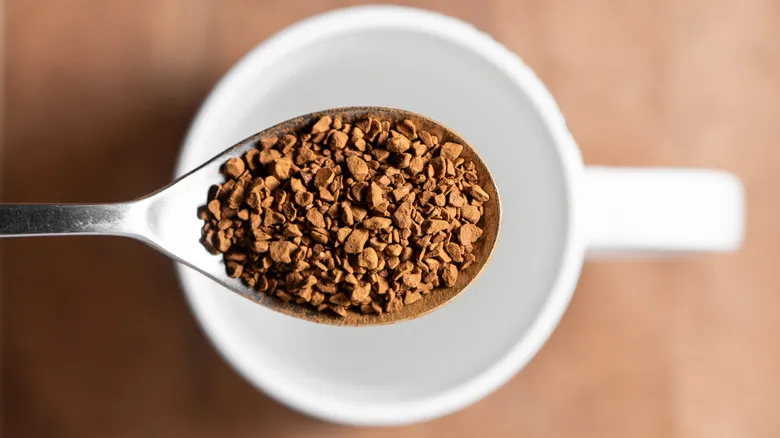What comes first, the ground coffee or the powder?

Instant coffee often lacks the rich flavor and strength of ground coffee beans, but it starts off in a similar manner. It is made from coffee beans that have been roasted, ground, and brewed. The resulting liquid is then dehydrated, leaving behind the granules that constitute instant coffee.
There are a few methods to achieve this dehydration. Generally, instant coffee is produced through either freeze-drying or spray-drying. Freeze-drying, as the name implies, involves freezing the coffee extract, breaking it down, and then drying the resulting coffee crystals under vacuum conditions. In contrast, spray-drying entails spraying liquid coffee into hot air, which transforms it into a fine powder.
While the caffeine content can differ among brands, instant coffee usually contains less caffeine than regular coffee. Coffee is rich in antioxidants, and according to the Harvard T.H. Chan School of Public Health, instant coffee offers many of the same health benefits associated with regular coffee. Additionally, for those who enjoy cold coffee, instant coffee can be used in iced beverages as well.
Recommended

Use This Overlooked Pantry Item To Bring A Foral Freshness To Coffee

The 9 Best Coffee Bean Brands For All Of Your Brewing Needs

The Beginner's Guide To Grilling Like A Master

What Makes Red Espresso Unique?
Next up

